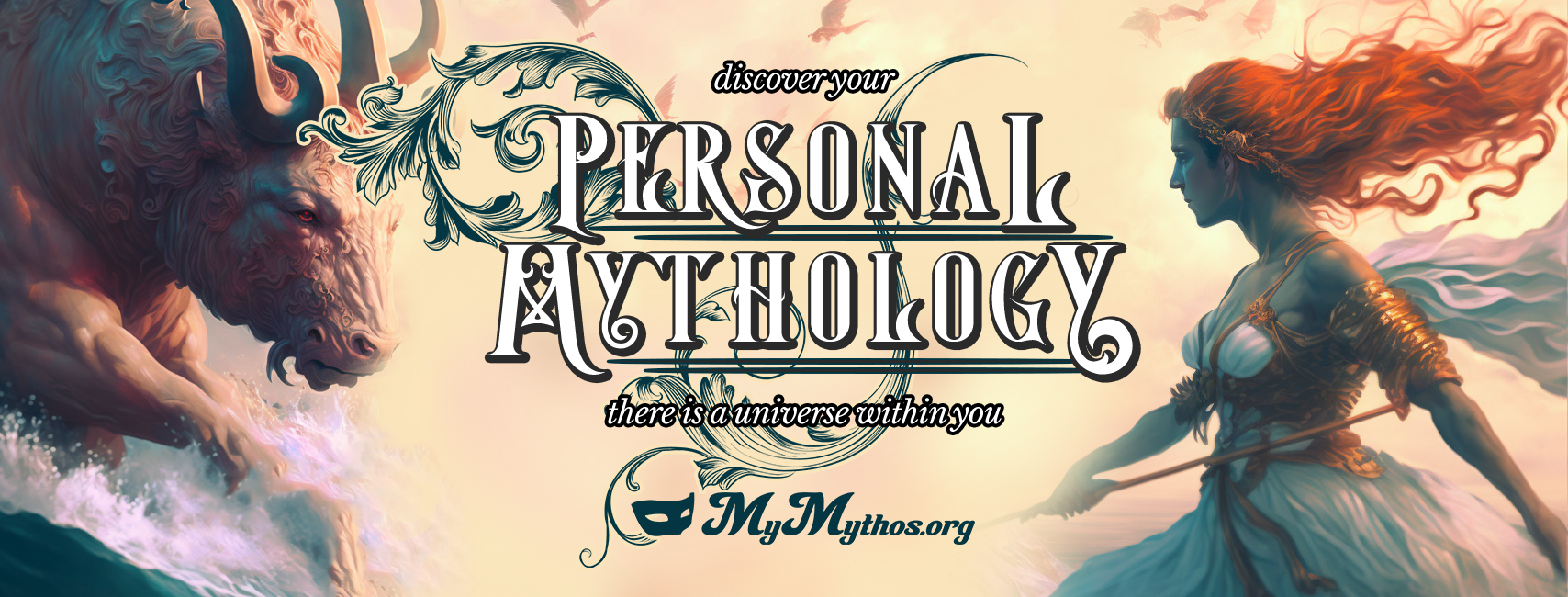We model our lives after myths because we have a series of experiences in life that guide us to these mythic roles such as “I’m a jester. I always try and bring a laugh and a silver lining to life’s situations.” or “I’m like a soldier. I just keep marching on through thick and thin.”.
These aren’t one-off phrases we think of and shrug away. They shape your entire life experience. As a jester you might save a life by being their silver lining, or you could endanger one by laughing off their serious predicament.
Knowing your personal mythology gives you the power to work with it, design and empower it.
There isn’t a person on the planet who doesn’t operate from some kind of metaphorical story about who they are. They will love a song because it makes them feel powerful, hate a color because it’s “girly”, or wear a lucky charm to a job interview.
But music doesn’t physically make you powerful, and colors don’t have genders, and science has never shown luck to exist. Yet, the power of these personal myths cannot be ignored.
Your identity is an amalgam of personal myths, and every single time you saw two or more archetypes interact, you made a judgement about the meaning and added that to your mythos.
For example, you hear about a prison that caught fire and some prisoners who died because of it.
You might focus on the fact that people were trapped and killed, in which case Empathy seems to be an important value to you. Or you might think to yourself that it’s unfortunate, but those people shouldn’t have committed their crimes in the first place, in which case you may have more of a focus on Retribution.
Furthermore, we all have taken on stories as our own. It’s called Experience Taking. Perhaps during a relationship, you may harbor thoughts such as: My heart is a trapped prisoner and in danger. Or, I’m like a Phoenix, I get destroyed over and over but I just keep coming back. Or, my anger is like a terrible beast; if I can control it well enough I can use it as a weapon. My soul is a garden, a beautiful and nurturing place.
We rarely face these mythologies head on, and so these stories rest like uncharted waters below the land subtly shifting our whole landscape. Yet they are also capable of bursting forth completely out of control. How does a prisoner react when in danger? Operating from that mythos you might choose from the Fight, Flight, or Freeze myths. Or maybe your mythos refuses to cast yourself as a victim, in which case you never see yourself as ‘in danger’ and the Fight, Flight, and Freeze myths never even occur to you. In the right circumstance, your mythology could mean life or death.
Every decision you make and every thought you permit is energy, fuel, even worship directed toward a mythos and its archetypes. Clearly it is necessary to become skilled in directing those prayers, wishes, hopes, and desires.
Let’s take a look at someone having a myth added to their mythos by force.
Story
When Dave was a small child a friend with whom he was playing pushed him and he fell down stairs and broke his arm. Also as a child, Dave’s dog disappeared one day and his mother said the dog had been killed by a car. Later he found out she had given his dog away because it was too noisy.
A Few Archetypes Involved:
- Victimhood
- Betrayal
- Loved Ones
Personal Mythology Created
People can be careless whether they mean to or not, so I cannot trust them when something is important to me. I’m also not comfortable doing risky activities in general.
Pay special attention to the fact that Dave only developed this personal myth because specific archetypes played out a particular narrative in his life; not because there is some set in stone law in the universe that says you can’t trust people. Countless other people had similar experiences as Dave’s and did not develop this myth, and were able to trust others despite their experience. This is why I say “Personal Mythology is the life story you gain from the interplay of archetypes.”. All the world’s a stage, no?
But now it gets complicated, as these things do. One of Dave’s core values is that he must be confident at all times! Yet whenever something like walking across a bridge with friends, or relationship issues come up, he gets anxiety about being hurt, and clearly does not feel very confident, and his behaviors follow suit. All because of being pushed down stairs by his friend. He has two mythologies in direct conflict: always be confident, and I’m afraid of trusting others.
If this reminds you of the plot devices in plays, movies, and other popular entertainment, you’ve made a very apt comparison. Not only do we gain our mythologies from these stories, but we are obsessed with seeing them play out. Every video, news article, social media post, and meme is an instance of the interplay of archetypes conveying their meanings to us. It then becomes our irresistible urge to interpret the meanings as we see them, or if we are really in control, as we want to see them. Have you ever had that on the edge feeling of “Well?! What happens next?!” That’s how powerful the interplay of archetypes is to us. We simply must know what comes next, especially if the story being played out pertains to our mythology in some way. We are mythological creatures after all.

